Saving the Unity of Great Britain, Breaking the Unity of Greater Russia
Samir Amin
FROM MONTHLY REVIEW
December 2014 (Volume 66, Number 7)

The people of Donetsk, as well as Luhansk and the rest of Novorussia and the Crimea have freely sought to unite with Russia. This ineluctable and easily demonstrable fact is constantly denied by Western propaganda. (Click to enlarge this image)
[dropcap]The media compelled[/dropcap] all of us to follow closely both the Scottish referendum of September 2014 and the conflict between Russia and Ukraine that took on increased momentum starting in spring 2014. We all heard two opposing stories: the unity of Great Britain must be protected in the interest of the English and Scottish people. Moreover, the Scots freely chose, through a democratic vote, to remain in the Union. In contrast, we were told that the independence of Ukraine, freely chosen by the Ukrainian people, is being threatened by the Great Russian expansionist aims of the dictator Putin. Let us look at these facts that were presented to us as incontrovertibly obvious for a good-faith observer.
The Formation of Great Britain
Great Britain (the United Kingdom) unites four nations (these are the terms used by David Cameron): the English, Scots, Welsh, and Irish from Northern Ireland. These four nations must continue to live together in a single state because it is in their interest to do so. The choice of those in favor of Scottish independence was thus presented as irrational, emotional, and without any serious foundation. Independence would have brought nothing good to the Scots.
These are some of the common arguments we heard: the petroleum resources on which Scotland depends will be exhausted sooner than many believe. Moreover, it is foreign international companies that actually carry out the exploitation of those resources (the implication being that they could leave in the event of a vote in favor of independence). The Scots are anxious to maintain some social benefits in education and health that the Westminster Parliament abolished when it lent its support to the neoliberal dogmas adopted and imposed by the European Union. David Cameron promised to take these demands into account by enlarging the local powers (of each of the United Kingdom’s four nations). Of course, the final decision is not within his power, but in that of the Westminster Parliament and Brussels. An independent Scotland would have to renegotiate its membership in the European Union, if it would so desire, and the process would be painful, long, and difficult. We are not told why that would be the case. After all, if an independent Scotland were to maintain the major European laws in force (which the supporters of independence did not question), it is difficult to see why it could not have been immediately recognized as a member of the European Union. It is also difficult to see why this process of joining the European Union would have been as painful as that to which countries from afar have been subjected (Lithuania or Bulgaria, for example), which were forced to reform their economic and social systems completely. The media even dared to say, with a straight face, that an independent Scotland would no longer be able to export its whisky to England or elsewhere!
In this debate, there was one great silence: no one made the comparison to Norway, a country with a population comparable to Scotland’s, which even shares the same petroleum resources of the North Sea. Norway, moreover, has chosen to remain outside the European Union and has benefited from this choice with a margin of autonomy that allows it to protect—if it so wishes—its social policies. Norway has, nevertheless, chosen to align itself more and more with the liberal economic policies of the European Union (we will not discuss the impact of this choice here—negative, in my opinion).
Behind the debate on the interests of Scots as they appear to both sides today lie different interpretations of history. The Scots, just as the Welsh and the Irish, were Celts (and spoke Celtic languages) and fought the English (Anglo-Saxons) and subsequently Anglo-Norman invaders of the British Isles. They were ultimately defeated and integrated into what was a “Greater England.” The arrogance of the English monarchy and aristocracy in relation to the defeated was not erased from their memory, even if, it seems, this page was turned later, perhaps only after the Second World War, with the triumph of the Labour Party and the social advances that triumph made possible.
The Scots, nevertheless, were truly integrated: they permanently lost the use of their language, just like the Occitans or Bretons in France. It is pointless to welcome these changes (Anglicization or Francization) or deplore them: it is an historical and irreversible fact. The Scots benefited from the Union, because of which they were able to emigrate easily to the industrial cities of England, the colonies and dominions, and the United States. They provided a good number of officers for the British army to train troops recruited in the colonies (a little like the Corsicans in France). I will not discuss here the positive or negative aspects of these facts. But above all, and this appears to me to be the strongest argument, Scotland and England were formed into a single modern, completely unified capitalist economy (just as were northern France and Occitania). There are undoubtedly more Scots (or people of Scottish ancestry, even if distant) who live and work in England than in their country of origin. In that way, Scotland cannot be compared with Norway.
And yet, despite this profound integration, which is, let us acknowledge, no longer discriminatory, the Scots like to think of themselves as distinct from the English. The English monarchy and aristocracy invented the Anglican version of the “Reformation,” i.e., Catholicism without the Pope (who was replaced by the King of England). The Scots chose a different path, the Calvinist reformed churches. The difference no longer has importance today, but it was important in the nineteenth century and even in the first half of the twentieth century.
The official interpretation of history, widely accepted by the peoples concerned, unhesitantly describes the union of the four nations into the contemporary United Kingdom as “positive overall.” This is what David Cameron and the British leaders of all the major parties in the United Kingdom tirelessly repeated. But this is also the opinion expressed by half of Scottish voters. They might say, even if at the cost of fracturing a difficult-to-heal public opinion, that the “pro-independence” half made an irrational choice (contrary to its interests) out of romanticism. What is not said is that exceptional means were systematically brought to bear to convince voters. To describe these means as blackmail or even as intellectual terrorism would not be overdoing it. The election, even if in formal terms it was completely free and transparent, is not in itself proof of the legitimacy, credibility, and permanence of the choice it ratified.
The history of the formation and continuity of the United Kingdom is thus a beautiful history stained only by its failure in Southern Ireland (Eire). The conquest of Ireland by the arrogant English lords, who grabbed the land and reduced the Irish peasants to a condition close to serfdom, with its disastrous demographic effects (repeated famines, massive emigration, depopulation), was nothing but a particularly brutal form of colonization. The Irish people resisted by hanging onto their Catholicism and ultimately reconquered their independence in 1922. But it remains the case that colonization led to the imposition, to this day, of the dominant use of the English language. Eire today is part of the European Union, whose dependence on British capitalism is attenuated only by its dependence on other major partners in the contemporary liberal world economy.
In summary, then, the suggested conclusion is that the differences inherited from history by the four nations of the United Kingdom do not dictate the breakup of Great Britain. The history of British capitalism is painted in shades of rose, not black.
The Formation of Russia and the Soviet Union
The media discourse on Greater Russia—the former Russian Empire of the Tsars and also the Soviet Union—takes on a completely different tone. In this case, we are told that we must come to a different conclusion: the differences are such that there was no other solution than to break up the formerly unified entity into distinct and independent states. But let us look a little more closely. The development of Greater Russia within the framework of the Tsarist Empire, followed by its profound transformation during the construction of the Soviet Union, was, as we are supposed to understand it, a black history, governed by the continual exercise of extreme violence alone.
I would like to challenge this view. The unification of three Slavic peoples (Great Russian, Ukrainian, and Belorussian) by the Tsars of Moscow, followed by Russian expansion to the Baltic in the west and to Siberia, the Transcaucasus, and Central Asia to the east and south, was no more violent and less respectful of the identity of the peoples affected than was the development of historical capitalism in the Atlantic West (and, within this context, of British capitalism) and its colonial expansion. The comparison even favors Russia. I am going to give a few examples. The reader will find more analyses in my other writings.
(1) The unification of the three “Russian” peoples (Great Russian, Ukrainian, and Belorussian) was certainly made through military conquest by the Tsars, as was the construction of France or Great Britain through military conquest by their kings. This political unification was the vector through which the Russian language was imposed—“naturally”—on local dialects. The latter were, moreover, considerably closer to one another than were, for example, the “langue d’Oil” and the “langue d’Oc” in France, English and the Celtic languages, or the Italian dialects in Sicily and Venice. To present linguistic Russification as a horror imposed by violence alone, as opposed to a supposedly tranquil expansion of French, English, or Italian, is to ignore historical reality. Again, I have no intention of evaluating here the nature of these linguistic expansions, whether it was long-term enrichment or cultural impoverishment. The point is that all of these linguistic expansions are historical facts of the same kind.
The Russians did not eliminate the Ukrainian and Belorussian (“feudal”) landowners; they were integrated into the same system that dominated Great Russia. The serfs and (after 1865) the free peasants of Ukraine and Belorussia were not treated differently than those of Great Russia; just as poorly, if you prefer.
The Bolsheviks’ communist ideology painted the history of Tsarism in shades of black, for good class reasons. Consequently, the Soviet Union recognized the differences (denied in the “civilized” West) and created distinct republics. What is more, to fight the danger of being accused of Great Russian chauvinism, the Soviets gave these republics boundaries that largely exceeded those that would have been drawn by a strict ethnolinguistic definition. One territory, such as Russian Crimea, could be transferred to another republic (in this case to Ukraine) without a problem. Novorossiya (“New Russia”—the Donetsk region), distinct from Malaia Rossiia (“Small Russia”—Ukraine), could be entrusted to Kiev’s administration rather than Moscow’s without causing any problems. The Bolsheviks had not imagined that these boundaries would become the borders of independent states.
(2) The Russians conquered the Baltic countries during the same time period the English settled Ulster. The Russians did not commit any horrors comparable to those of the English. They respected the rights of the local landowning elites (in this case, Baltic barons of German origin) and did not discriminate against the local subjects of the Tsar, who were certainly poorly treated, just like the serfs of Great Russia. The Russian Baltic countries certainly experienced nothing comparable to the savage dispossession of the Irish people in Northern Ireland, chased out by the invasion of the “Orangemen.” Later, the Soviets restored the fundamental rights of the Baltic republics—the use of their own languages and the promotion of their own cultures.
(3) The expansion of the Tsarist Empire beyond the Slavic regions is not comparable to the colonial conquest by the countries of Western capitalism. The violence carried out by the “civilized” countries in their colonies is unparalleled. It amounted to accumulation by dispossession of entire peoples, with no hesitation about resorting to straightforward extermination, i.e., genocide, if necessary (the North American Indians and the Australian Aborigines, exterminated by the English), or, alternatively, brutal control by a colonial government (India, Africa, Southeast Asia). The Tsars, precisely because their system was not yet a capitalist one, conquered territories without dispossessing the inhabitants. Some of the conquered peoples were integrated into the Empire and were Russified to varying degrees, notably through using the Russian language and often forgetting their own. This was the case with many of the Turco-Mongolian minorities, though they retained their religion, be it Muslim, Buddhist, or Shamanist. Others preserved their national and linguistic identity—the Transcaucasus and Central Asia south of Kazakhstan. None of these peoples were exterminated like the North American Indians or Australian Aborigines. The brutal autocratic administration of the conquered territories and Russian arrogance prevent us from painting this history in shades of rose. But it remains less black than was the behavior of the English in Ireland (not in Scotland), India, North America, or the French in Algeria. The Bolsheviks painted this history in shades of black, and always for the same good reasons of class.
The Soviet system brought changes for the better. It gave these republics, regions, and autonomous districts, established over huge territories, the right to their cultural and linguistic expression, which had been despised by the Tsarist government. The United States, Canada, and Australia never did this with their indigenous peoples and are certainly not ready to do so now. The Soviet government did much more: it established a system to transfer capital from the rich regions of the Union (western Russia, Ukraine, Belorussia, later the Baltic countries) to the developing regions of the east and south. It standardized the wage system and social rights throughout the entire territory of the Union, something the Western powers never did with their colonies, of course. In other words, the Soviets invented an authentic development assistance, which presents a stark contrast with the false development assistance of the so-called donor countries of today.
There was no inherent reason that this system, with an economy that was completely integrated at the level of the Union, had to disintegrate. There was no objective necessity that had to lead to the breakup of the Union into independent states, sometimes even in conflict with one another. Western media chatter about the “necessary end of empires” does not hold water. Yet, the USSR indeed broke apart, which needs to be explained.
The Break Up of the USSR: Inevitability or Conjuncture Created by Recent History?
The peoples of the Soviet Union did not choose independence. There was no electoral process, neither in Russia nor elsewhere in the Union, prior to the declarations of independence, which were proclaimed by those in power, who themselves had not really been elected. The ruling classes of the republics, above all in Russia, bear complete responsibility for the Union’s dissolution. The only question is to know why they made this choice when they made it. The leaders of the central Asian republics did not really want to separate from Russia. It was the latter that presented them with a fait accompli: the dissolution of the Union.
I will not examine this question in detail here, for which I have already presented my arguments elsewhere. Yeltsin and Gorbachev, who rallied to the idea of completely and immediately reestablishing liberal capitalism through “shock therapy,” wanted to get rid of the burdensome republics of central Asia and the Transcaucasus (which benefited, in the Soviet Union, from capital transfers from Russia). Europe took it on itself to force the independence of the Baltic republics, which were immediately annexed to the European Union. In Russia and Ukraine, the same oligarchs stemming from the Soviet nomenklatura seized both absolute political power and major assets from the large industrial complexes of the Soviet economy, privatized in haste for their exclusive benefit. It is they who decided to separate into distinct states. The western powers—the United States and Europe—are not responsible for the disaster at this initial stage. But they immediately understood the advantage they could gain from the disappearance of the Union and then became active agents intervening in the two countries (Russia and Ukraine), stirring up hostility between their corrupt oligarchs.
Of course, the collapse is not solely the result of its immediate cause: the disastrous choice of the ruling classes in 1990–1991. The Soviet system had been rotten for at least two decades. The abandonment of the revolutionary democracy of 1917 in favor of an autocratic management by the new Soviet state capitalism is, in fact, the origin of the rigidity of the Brezhnev era, the rallying of the political ruling class to the capitalist perspective, and the ultimate disaster.
Although it has retained the neoliberal capitalist model for its internal economic management (in a “Jurassic Park” version, to use Aleksandr Buzgalin’s expression), Putin’s Russia has not been accepted by contemporary collective imperialism (the G7: United States, Europe, and Japan) as an equal partner. Washington and Brussels’ objective is to destroy the Russian state (and the Ukrainian state), reducing them to regions subject to the expansion of the capitalism of the Western oligopolies. Putin became aware of this later, when the Western powers prepared, financed, and supported what can only be described as an Euro-fascist coup d’état in Kiev.
The question that is posed now is thus a new one: Will Putin break with economic neoliberalism to embark on, with and like others (China in particular), an authentic project of economic and social renaissance, the “Eurasian” alternative that he announced the intention of constructing? It must be understood, though, that this construction can move forward only if it knows how to “walk on two legs,” i.e., pursue both an independent foreign policy and economic and social reconstruction.
Double Standards?
By comparing the Scottish situation with that of Ukraine, we can only note the duplicity of the words and actions of the Western powers: a double standard. The same duplicity exists for a host of other issues about which I will say nothing here: “for” German unity, paid for dearly by the annexed “Easterners,” but “against” the unity of Yugoslavia, Iraq, and Syria. In reality, behind this appearance looms the one and only criterion that governs the choices of the governments of collective imperialism (United States, Europe, Japan): the viewpoint of dominant financial capital. But to see this clearly in their choices we must proceed further in analyzing the system of contemporary capitalism.
The State in Contemporary Capitalism
I shall only take up here the main points of the analyses I have offered in recent writings to answer the question posed in this article: Why (and by what means) are the dominant policies used to strengthen the state in some places and destroy it elsewhere?
(1) The system of capitalist production has been involved for the last thirty years (beginning in 1980) in a qualitative transformation that can be summed up in this way: what we are seeing is the emergence of a globalized production system that is gradually being substituted for the earlier national production systems (in the center, autonomous and simultaneously aggressively open systems; in the peripheries, dominated systems to varying degrees and in various forms), themselves articulated in a hierarchical world system (characterized, among other things, by the center/periphery contrast and the hierarchy of imperialist powers).
In the 1970s, Sweezy, Magdoff, and I had already advanced this thesis, formulated by André Gunder Frank and me in a work published in 1978. We said that monopoly capitalism was entering a new age, characterized by the gradual—but rapid—dismantling of national production systems. The production of a growing number of market goods can no longer be defined by the label “made in France” (or the Soviet Union or the United States), but becomes “made in the world,” because its manufacture is now broken into segments, located here and there throughout the whole world.
Recognizing this fact, now common knowledge, does not imply that there is only one explanation of the major cause for the transformation in question. For my part, I explain it by the leap forward in the degree of centralization in the control of capital by the monopolies, which I have described as the move from the capitalism of monopolies to the capitalism of generalized monopolies. In fifteen years (between 1975 to 1990) a large number of these monopolies (or oligopolies) located in the countries of the dominant triad (United States, Europe, Japan) became capable of controlling all production activities, in their own countries and in the entire world, reducing the entities involved, de jure or de facto, to subcontractors. Consequently, they have been able to siphon off a significant share of the surplus value produced by these subcontracted activities, which ends up increasing the rent of the dominant monopolies in the system. The information revolution, among other factors, provides the means that make possible the management of this globally dispersed production system. But for me, these means are only implemented in response to a new objective need created by the leap forward in the centralized control of capital. For others, on the other hand, the means—the information revolution and the revolution in production technologies—are themselves the cause of the transformation in question.
The dismantlement of national production systems, themselves the product of the long earlier history of the development of capitalism, involves almost every country in the world. In the centers (the triad), this dismantlement of national production systems can appear relatively slow and limited due to the weight of the inherited and still active system. But each day it advances a bit more. In contrast, in the national production systems of the peripheries, which had made progress towards the construction of a modernized national industrial system (the Soviet Union, Eastern Europe, and to a lesser degree in scattered places in Asia, Africa, and Latin America), the aggression of the capitalism of the generalized monopolies (through submission—voluntary or forced—to the so-called principles of globalized neoliberalism) is expressed by a violent, rapid, and total dismantlement of the national systems in question and the transformation of local production activities in these countries into subcontracted activities. The rent of the generalized monopolies of the triad, the beneficiaries of this dismantlement, becomes an imperialist rent. I have described this transformation, viewed from the peripheries, as “re-compradorization.” This process has affected all countries from the former Eastern bloc (former Soviet Union and Eastern Europe) and all countries in the South. China alone is a partial exception.
The emergence of this globalized production system eliminates coherent “national development” policies (diverse and unequally effective), but it does not substitute a new coherence, which would be that of the globalized system. The reason for that is the absence of a globalized bourgeoisie and globalized state, which I will examine later. Consequently, the globalized production system is incoherent by nature.
Another important consequence of this qualitative transformation of contemporary capitalism is the emergence of the collective imperialism of the triad, which takes the place of the historical national imperialisms (of the United States, Great Britain, Japan, Germany, France, and a few others). Collective imperialism finds its raison d’être in the awareness by the bourgeoisies in the triad nations of the necessity for their joint management of the world and particularly of the subjected, and yet to be subjected, societies of the peripheries.
(2) Some draw two correlates from the thesis of the emergence of a globalized production system: the emergence of a globalized bourgeoisie and the emergence of a globalized state, both of which would find their objective foundation in this new production system. My interpretation of the current changes and crises leads me to reject these two correlates.
There is no globalized bourgeoisie (or dominant class) in the process of being formed, neither on the world scale nor in the countries of the imperialist triad. We do note an increase in direct and portfolio investment flows from the triad (particularly major flows between the trans-Atlantic partners). Nevertheless, based on my critical interpretation of the major empirical works that have been devoted to the subject, I am led to emphasize the fact that the centralization of control over the capital of the monopolies takes place within the nation-states of the triad (United States, each member of the European Union, Japan) much more than it does in the relations between the partners of the triad, or even between members of the European Union. The bourgeoisies (or oligopolistic groups) are in competition within nations (and the national state manages this competition, in part at least) and between nations. Thus the German oligopolies (and the German state) took on the leadership of European affairs, not for the equal benefit of everyone, but first of all for their own benefit. At the level of the triad, it is obviously the bourgeoisie of the United States that leads the alliance, once again with an unequal distribution of the benefits.
The idea that the objective cause—the emergence of the globalized production system—entails ipso facto the emergence of a globalized dominant class is based on the underlying hypothesis that the system must be coherent. In reality, it is possible for it not to be coherent. In fact, it is not coherent and hence this chaotic system is not viable.
The expansion of the Tsarist Empire beyond the Slavic regions is not comparable to the colonial conquest by the countries of Western capitalism. The violence carried out by the “civilized” countries in their colonies is unparalleled.
In the peripheries, the globalization of the production system occurs in conjunction with the replacement of the hegemonic blocs of earlier eras by a new hegemonic bloc dominated by the new comprador bourgeoisie, the exclusive beneficiary of the dismantling of the earlier systems (the means by which this transformation was produced are well known: “privatization” of parts of the old dismantled system, the assets of which were sold at artificial prices incommensurate with their values). These new comprador bourgeoisies are not constitutive elements of a globalized bourgeoisie, but only subaltern allies of the bourgeoisies of the dominant triad.
Just like there is no globalized bourgeoisie in the process of formation, there is also no globalized state on the horizon. The major reason for that is that the current globalized system does not attenuate, but actually accentuates conflict (already visible or potential) between the societies of the triad and those of the rest of the world. I do indeed mean conflict between societies and, consequently, potentially conflict between states. The advantage derived from the triad’s dominant position (imperialist rent) allows the hegemonic bloc formed around the generalized monopolies to benefit from a legitimacy that is expressed, in turn, by the convergence of all major electoral parties, right and left, and their equal commitment to neoliberal economic policies and continual intervention in the affairs of the peripheries. In contrast, the neo-comprador bourgeoisies of the peripheries are neither legitimate nor credible in the eyes of their own people (because the policies they serve do not make it possible to “catch up,” and most often lead to the impasse of lumpen-development). Instability of the current governments is thus the rule in this context.
Just as there is no globalized bourgeoisie even at the level of the triad or that of the European Union, there is also no globalized state at these levels. Instead, there is only an alliance of states. These states, in turn, willingly accept the hierarchy that allows that alliance to function: general leadership is taken on by Washington, and leadership in Europe by Berlin. The national state remains in place to serve globalization as it is. It is an active state because the spread of neoliberalism and the pursuit of external interventions require that it be so. We can thus understand that the weakening of this state by a possible breakup for any of a variety of reasons is not desirable for capital of the generalized monopolies (hence the hostility to the Scottish cause examined above).
There is an idea circulating in postmodernist currents that contemporary capitalism no longer needs the state to manage the world economy and thus that the state system is in the process of withering away to the benefit of the emergence of civil society. I will not go back over the arguments that I have developed elsewhere against this naive thesis, one moreover that is propagated by the dominant governments and the media clergy in their service. There is no capitalism without the state. Capitalist globalization could not be pursued without the interventions of the United States armed forces and the management of the dollar. Clearly, the armed forces and money are instruments of the state, not of the market.
But since there is no world state, the United States intends to fulfill this function. The societies of the triad consider this function to be legitimate; other societies do not. But what does that matter? The self-proclaimed “international community,” i.e., the G7 plus Saudi Arabia, which has surely become a democratic republic, does not recognize the legitimacy of the opinion of 85 percent of the world’s population!
There is thus an asymmetry between the functions of the state in the dominant imperialist centers and those of the state in the subject, or yet to be subjected, peripheries. The state in the compradorized peripheries is inherently unstable and, consequently, a potential enemy, when it is not already one.
There are enemies with which the dominant imperialist powers have been forced to coexist—at least up until now. This is the case with China because it has rejected (up until now) the neo-comprador option and is pursuing its sovereign project of integrated and coherent national development. Russia became an enemy as soon as Putin refused to align politically with the triad and wanted to block the expansionist ambitions of the latter in Ukraine, even if he does not envision (or not yet?) leaving the rut of economic liberalism.
The great majority of comprador states in the South (that is, states in the service of their comprador bourgeoisies) are allies, not enemies—as long as each of these comprador states gives the appearance of being in charge of its country. But leaders in Washington, London, Berlin, and Paris know that these states are fragile. As soon as a popular movement of revolt—with or without a viable alternative strategy—threatens one of these states, the triad arrogates to itself the right to intervene. Intervention can even lead to contemplating the destruction of these states and, beyond them, of the societies concerned. This strategy is currently at work in Iraq, Syria, and elsewhere. The raison d’être of the strategy for military control of the world by the triad led by Washington is located entirely in this “realist” vision, which is in direct counterpoint to the naive view—à la Negri—of a globalized state in the process of formation.
(3) Does the emergence of the globalized production system offer better chances of “catching up” to the countries of the periphery?
The ideological propaganda of the dominant powers—expressed by the World Bank, for example—is devoted to making us believe that: if you join in globalization, play the game of competition, you will record respectable, even fabulous, growth rates and improve your chances of catching up! In the countries of the South, social and political forces that support neoliberalism obviously latch on to this discourse. The naive left—again in the manner of Negri—does so as well.
I have already said it and I shall repeat it: if the prospect of catching up by capitalist methods and within globalized capitalism were truly possible, no social, political, or ideological force would be able to block that road, even in the name of another, preferable future for all of humanity. But that is simply not possible: the development of globalized capitalism at all stages of its history, today within the framework of the emergence of a globalized production system just as much as at earlier stages, can only produce, reproduce, and deepen the center/periphery contrast. The capitalist path is an impasse for 80 percent of humanity. The periphery remains, consequently, the “zone of storms.”
What then? There is no other alternative than choosing to construct an autonomous national system based on the establishment of self-sustaining industry combined with the renewal of agriculture organized around food sovereignty. I will say no more about that here, having already offered several analyses on the subject. It is not a question of nostalgia for a return to the past—Soviet or national popular—but the creation of conditions making possible the development of a second wave of awakening for the peoples of the South who could then link their struggles with those of peoples of the North, who are also victims of a savage capitalism in crisis and for which the emergence of a globalized production system offers nothing. Then humanity could finally advance on the long road to communism, a higher stage of human civilization.
References
About Russia, the Soviet Union, and the Ukrainian conflict, see:
- Samir Amin, Beyond US Hegemony? Assessing the Prospects (London: Zed Press, 20060, chapter 3, “Russia Out of the Tunnel?”
- ———. Global History: A View from the South (Oxford: Pambazuka Press, 2011), chapter 6, “Russia in the World System.”
- ———. “The Return of Fascism in Contemporary Capitalism,” Monthly Review 66, no. 4 (September 2014): 1-12.
- ———. “Russia and the Ukranian Crisis,” Pambazuka News, no. 674 (April 17, 2014), http://pambazuka.net.
- Buzgalin, Aleksandr, “The West-Ukraine-Russia: Multidimensionality of Contradictions, Definiteness of a Position” (video), July 16, 2014, http://youtube.com.
In contrast, about China, see:
- Samir Amin, “China 2013,” Monthly Review 64, 10 (March 2013): 14-33.
About contemporary capitalism, see:
- Samir Amin, “Contra Hardt and Negri: Multitude or Generalized Proletarianization?,” Monthly Review 66, no. 6 (November 2014): 25-36.
- ———. “Transnational Capitalism or Collective Imperialism?” Pambazuka News, no. 522 (March 23, 2011), http://pambazuka.net.
- Samir Amin and Andre Gunder Frank, “N’attendon pas 1984,” in Andre Gunder Frank, Réflexions sur la nouvelle crise économique mondiale (Paris: Maspero, 1978).
is director of the Third World Forum in Dakar, Senegal. His books published by Monthly Review Press include The Liberal Virus, The World We Wish to See, The Law of Worldwide Value, and, most recently, The Implosion of Contemporary Capitalism.
This article was translated from the French by James Membrez.
A word from the Editors of The Greanville Post
THEIR LIES.
THEIR CONSTANT PROPAGANDA.
OUR TRUTH.
HUGE ISSUES ARE BEING DECIDED: Nuclear war, whether we’ll live in democracy or tyranny, dignity or destitution, planetary salvation or doom…It’s a battle of communications we can’t afford to lose.
So, we request that you do something.
Reading is not enough. Action of some sort is needed.
Start with something simple: Share our posts.
If you don’t, how can we ever neutralize the power of the corporate media?
And if you took the time to read this article, and found it worth SHARING, then why not sign up with our special bulletin to be included in our future distributions? And please tell others about The Greanville Post.
YOUR SUBSCRIPTIONS (SIGNUPS TO THE GREANVILLE POST BULLETIN) ARE COMPLETELY FREE, ALWAYS. AND WE DO NOT SELL OR RENT OUR EMAIL ADDRESS DATABASES—EVER. That’s a guarantee.






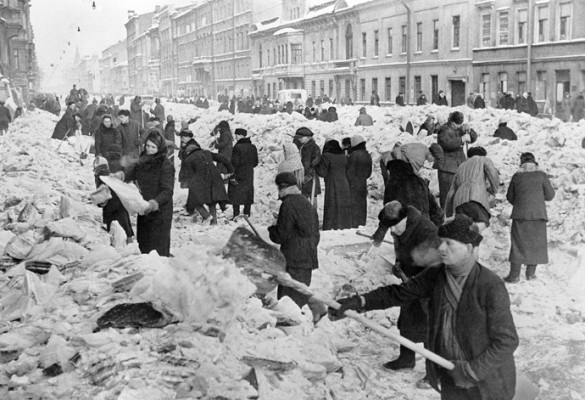
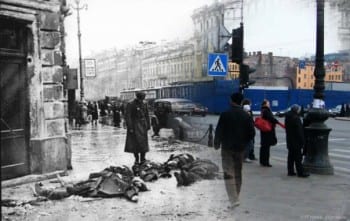






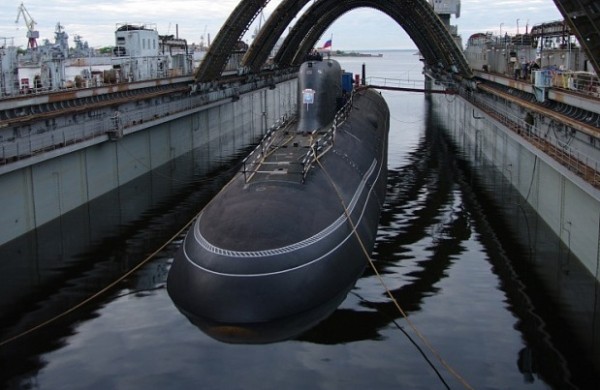

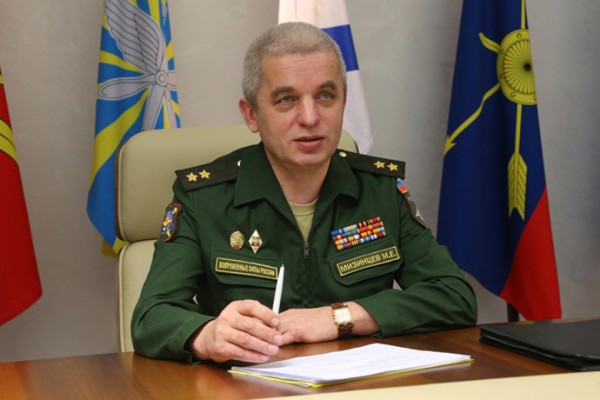
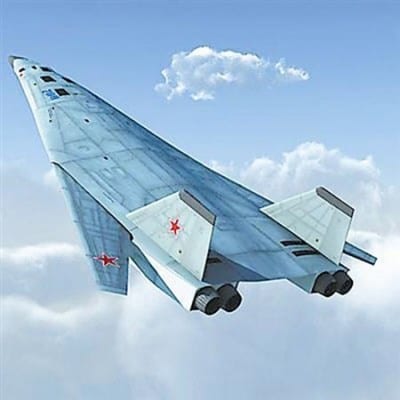
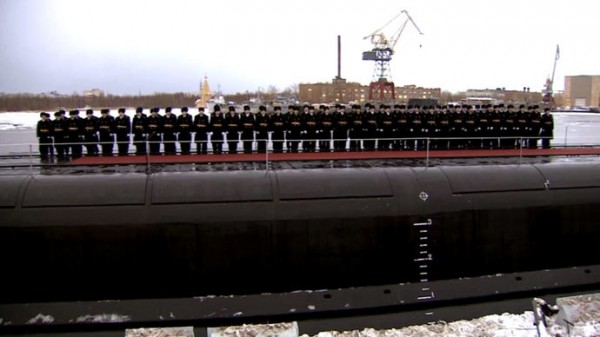
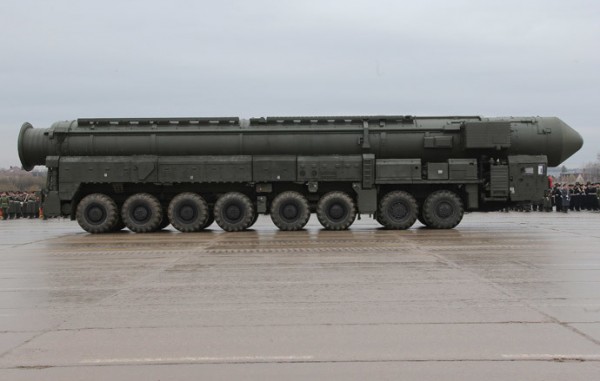
John Sumner said in reply to kao_hsien_chih…